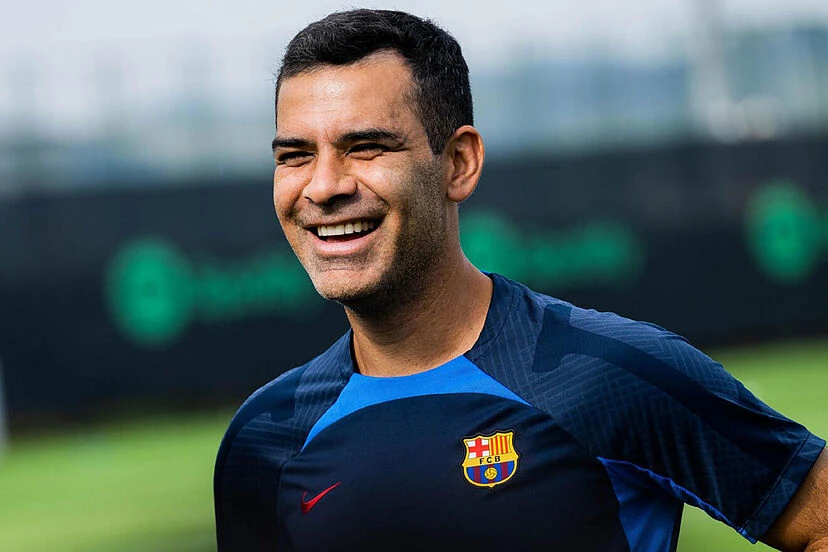The Story of Success of Rafael Márquez in Mexican Football
Rafael Márquez, often regarded as one of Mexico’s greatest footballers, built a legacy that spanned over two decades, both domestically and internationally. Born in Zamora, Michoacán, in 1979, Márquez’s journey to football stardom began with his early passion for the game. He made his professional debut at just 17 years old with Atlas in 1996, where his impressive performances as a central defender quickly gained attention. Márquez’s combination of defensive intelligence, composure, and technical skills set him apart, paving the way for his transition to European football and international fame.
Role in National Team & Career Path
In 1999, Márquez moved to AS Monaco in France, becoming one of the first Mexican players to make a mark in European football. He won the Ligue 1 title in his debut season, showcasing his ability to adapt to higher levels of competition. His success at Monaco earned him a transfer to FC Barcelona in 2003, where he would reach the pinnacle of his career. During his time at Barcelona, Márquez won four La Liga titles, two UEFA Champions League trophies, and multiple domestic and international honors. He was a key figure in Barcelona’s defensive line, contributing not only to defense but also to building attacks with his exceptional passing accuracy and vision.
Márquez’s impact extended to the Mexico National Team, where he served as captain for an unprecedented five FIFA World Cups (2002, 2006, 2010, 2014, and 2018). His leadership on and off the field earned him the nickname “El Káiser” (The Kaiser), reflecting his authoritative style reminiscent of German legend Franz Beckenbauer. Márquez was instrumental in Mexico’s success in the 2003 CONCACAF Gold Cup and the 1999 FIFA Confederations Cup, where Mexico claimed the title by defeating Brazil. His ability to rise to the occasion in high-pressure matches made him a fan favorite and a symbol of consistency.
Even in the later stages of his career, Márquez continued to impress, returning to Liga MX to play for León, where he won back-to-back league titles in 2013 and 2014. His resilience and professionalism allowed him to maintain a high level of performance until his retirement in 2018, leaving behind a legacy as one of the most decorated and respected players in Mexican football history.
Career Highlights of Rafael Márquez
| Club/Team | Years Played | Achievements | Notable Stats |
|---|---|---|---|
| Atlas | 1996–1999 | Developed as a young star in Liga MX | 77 appearances, 6 goals |
| AS Monaco | 1999–2003 | Ligue 1 Champion (1999–2000) | 87 appearances, 5 goals |
| FC Barcelona | 2003–2010 | 4 La Liga titles, 2 UEFA Champions League titles | 163 appearances, 9 goals |
| New York Red Bulls (MLS) | 2010–2012 | Elevated the profile of MLS with his international presence | 44 appearances, 1 goal |
| León | 2013–2014 | Back-to-back Liga MX titles | 36 appearances, 1 goal |
| Mexico National Team | 1997–2018 | FIFA Confederations Cup Champion (1999), 5 World Cup Appearances | 147 caps, 19 goals |
Key Achievements of Rafael Márquez
- Five FIFA World Cup Appearances: Represented Mexico in 2002, 2006, 2010, 2014, and 2018, serving as captain in all five tournaments.
- UEFA Champions League Winner (Twice): Played a critical role in Barcelona’s victories in 2006 and 2009, cementing his place in European football history.
- Multiple Domestic Titles with Barcelona: Won 4 La Liga titles and other major Spanish trophies, showcasing his consistency and dominance.
- International Success with Mexico: Helped Mexico win the 1999 FIFA Confederations Cup and the 2003 Gold Cup, leading the team with skill and composure.
- Back-to-Back Liga MX Titles with León: Returned to Mexico to finish his career with a flourish, securing two league titles in 2013 and 2014.
The Legacy of Rafael Márquez
Rafael Márquez’s legacy transcends his statistics and trophies. He is remembered as a leader, a tactician, and a defender with the elegance of a midfielder. His career represents the possibilities for Mexican footballers to succeed on the global stage, inspiring generations of players to pursue careers in top European leagues.
Márquez’s adaptability allowed him to thrive in different systems and roles, from a defensive anchor to a playmaker. His ability to lead by example and handle pressure in critical moments made him a cornerstone for both club and country. Off the field, Márquez has remained involved in football, contributing as a coach and analyst, further influencing the development of Mexican football.
From his humble beginnings at Atlas to his triumphs with FC Barcelona and the Mexico National Team, Rafael Márquez’s journey is a testament to hard work, talent, and leadership. His story serves as an inspiration for aspiring footballers, proving that dedication and resilience can lead to greatness.

